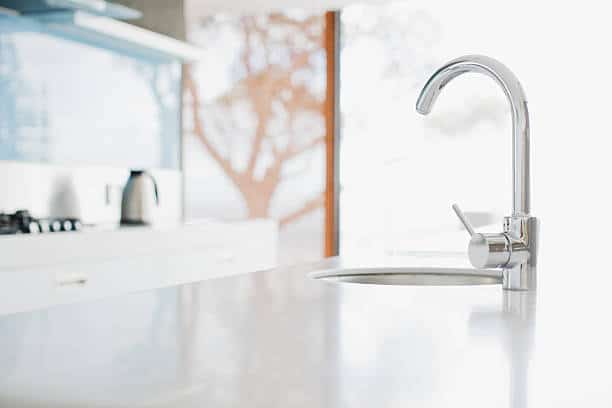If you are looking for an affordable option, you can have your surface polished. Polishing will give your surface a shiny finish and make it look new at the same time.
When it comes to designing your kitchen or bathroom, you have a choice between using non-porous or porous countertops.
But what are these types of countertops, and how do they differ from each other? What exactly is a porous surface, and why is it dangerous to a person’s health?
Porous And Non Porous Materials
What is the best porous countertop?
If you’re looking for a surface that can handle water, you should choose a stone with open pores, meaning the number of holes per unit area. For example, granite has more holes than marble.
Are wood countertops non-porous or porous?
When it comes to issues that affect the appearance of countertops, wood is often said to be porous.
Wooden countertops are a type of surface that many people like to use. In addition to the warm look, the wood grain is quite beautiful.
However, it is not a type of countertop that cannot be easily cleaned, especially if it is not stained. In fact, most wood countertops are non-porous.
Are quartz countertops non-porous?
Quartz countertops are indeed non-porous.
This means that they do not allow liquids to pass through them and therefore do not stain. They are made of 100% natural quartz, which makes them beautiful and they look very modern.
They are so popular because they come in different finishes and can be easily cleaned with a simple wipe down, making them perfect for busy people.
Natural Quartzite Countertops
Quartzite is a porous material that requires sealing. Without a seal, spills can easily seep in.
This will only lead to stubborn stains. In addition to that, these stains can also cause bacteria, especially if the spill is not cleaned up immediately.
Are granite countertops non-porous?
Granite countertops are porous. However, because they are porous, they are effortless to clean.
In fact, when you wipe the surface clean, only particles remain that can be wiped off.
Are Bamboo countertops non-porous?
Bamboo is a natural non-porous material that is very different from most wood materials.
Porous And Non Porous Meaning
What is a non-porous and porous countertop?
A non-porous countertop can be described as a surface that does not allow liquids to pass through it.
This is accomplished by making the surface with chemicals that prevent liquids from seeping (or staining) through.
Many people wonder if non-porous countertops are worth the price since the surface cannot be cleaned without special cleaning products.
These countertops are made from materials such as laminates, acrylics, glass, solid surfaces, and concrete.
Although they have been quite popular in recent years, porous countertops are mainly used in commercial kitchens, where they can provide a quick and easy way to clean.
When you clean the surface, only particles remain that can be washed off.
Since porous countertops tend to attract water, it is best to use non-porous utensils to absorb liquids.
Examples of porous countertops would be natural stone, marble, and granite.
What are the differences between non-porous and porous countertops?
The main difference between these two countertops is that porous ones are mainly used in commercial kitchens because of their ease of cleaning.
For example, if you use a non-porous utensil in a kitchen with porous countertops, it will absorb water.
This creates a mess that needs to be cleaned up, which can cause a delay in kitchen preparation.
Porous countertops are good for kitchen centers, where non-porous utensils are not as prevalent as in commercial kitchens.
At home, non-porous countertops are used in kitchens where the main purpose is cooking, while porous is used in kitchens where the main purpose is socializing.
Advantages and disadvantages of having a non-porous countertop in your kitchen
The main advantage of having a non-porous surface is that it is easy to clean.
These countertops can be placed in your kitchen without worrying since you won’t have to clean the surface after cooking.
The downside is that they are expensive and not everyone can afford them.
Pros and cons of having a porous countertop in your kitchen.
There are many advantages to having a porous countertop. First of all, they are warm to the touch.
This may not seem like a big deal, but others know how hard it is to resist picking up the top to make sure the stone hasn’t cracked.
The downside of having a porous countertop is that they are not very durable.
Water absorption, easy scratching, and possible discoloration are some of the drawbacks.

